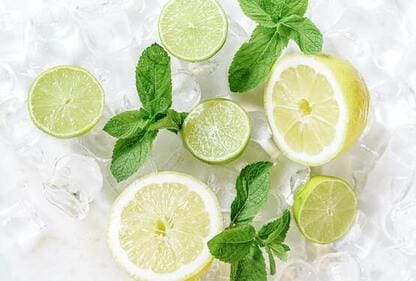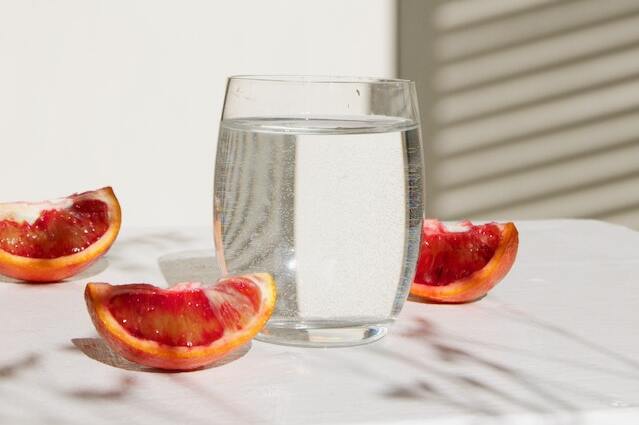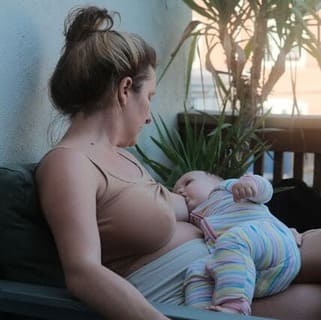Keeping Your Children Hydrated: A Parent's Guide
In the hustle and bustle of daily life, it’s easy to overlook a fundamental aspect of our health: hydration. As adults, we often take for granted the importance of staying adequately hydrated. But did you know that children are even more susceptible to dehydratio as their bodies are more vulnerable to fluid imbalances than adults? In this article, we’ll explore the significance of hydration for children, how to recognize signs of dehydration, and expert tips to ensure your little ones are getting enough fluids.

Why Proper Hydration Is Critical for Children’s Health
Our bodies, regardless of age, are primarily composed of water, about 70% approximately. Water plays a vital role in various bodily functions, from regulating body temperature to aiding in digestion and waste elimination. The significance of staying hydrated cannot be stressed enough, especially for growing children. Throughout the day, kids lose water through sweat, breathing, and urination. To prevent the risks associated with dehydration, it’s crucial to replenish lost fluids.
Research consistently shows that even mild dehydration—as little as 1-2% loss of body weight—can negatively impact a child’s cognitive function, physical performance, and overall mood. What’s particularly concerning is that, by the time a child feels thirsty, they’re already experiencing the early stages of dehydration.
Dehydration Risks in Children
Children face a higher risk of dehydration compared to adults. This vulnerability stems from their proportionally larger skin area, which allows for increased sweat loss and heat exposure. Moreover, kids might not always recognize their thirst cues, and without proper encouragement, they could easily forget to drink water. Identifying signs of dehydration in children is paramount to their well-being.
Recognizing Dehydration in Kids
Detecting dehydration in children isn’t as complicated as it might seem. Frequent bathroom trips or wet diapers are reliable indicators of hydration status. Keep an eye out for these common signs:
- Headaches
- Poor concentration
- Thirst
- Cracked lips
- Dry mouth
- Constipation
- Lethargy
- Dark urine
More Severe Dehydration Signs (Requiring Medical Attention)
- No tears when crying
- Sunken eyes or fontanelle (soft spot on an infant’s head)
- Skin that doesn’t bounce back when pinched
- Extreme thirst
- Rapid breathing or heartbeat
- Cool, mottled extremities
- Decreased consciousness or responsiveness
Parents should be especially vigilant during situations that increase dehydration risks: hot weather, physical activities, illness (especially with fever, vomiting, or diarrhea), and travel.
Hydration Guidelines for Children
The appropriate water intake for your child varies based on factors like age, size, and activity level. For kids under 8 years old, it’s recommended to consume at least 4-6 glasses of water. As children grow older, this requirement increases to 6-8 glasses for those above 8 years of age.
Children engaged in sports or high activity levels need extra fluids. Likewise, hot days or illnesses demand heightened fluid intake.
Daily Water Intake Guidelines by Age
| Age Group | Recommended Daily Water Intake |
|---|---|
| 1-3 years | 4 cups |
| 4-8 years | 5 cups |
| 9-13 years | 7-8 cups for boys, 6-7 cups for girls |
| 14-18 years | 10 cups for boys, 8 cups for girls |
Important note: These guidelines represent total water intake, including water from foods (which typically accounts for about 20% of fluid intake). Actual drinking water requirements may be slightly lower, especially if your child consumes water-rich foods like fruits and vegetables.
 |
 |
|---|
Top Tips to Keep Kids Hydrated
-
Pack a Water Bottle: Whether it’s for school or outings, a water bottle should be a constant companion. In the summer, try freezing the water bottle for a refreshing sip on the go.
-
Pre and Post-Activity Hydration: Encourage your child to drink water before, during, and after physical activities. Hydration aids performance and recovery.
-
Water with Meals and Snacks: Make water a regular part of meal and snack times. This ensures a consistent intake throughout the day.
-
Make Hydration Fun: If your child isn’t particularly fond of water, there are creative solutions. Add slices of fruits like lemon or orange for added flavor.
-
Lead by Example: Children often emulate their parents’ behavior. Drink water together to instill healthy habits.
-
Temperature Variations: Experiment with temperature. Keep a jug of water in the fridge, add ice cubes, or offer warm water during colder months.
-
Limit Competing Beverages: Reduce access to sugary drinks, including juice and soda.
 |
 |
|---|
Water: The Ultimate Hydration Choice
While various fluids contribute to hydration, water remains the best option for kids. It’s calorie-free and effectively quenches thirst. While milk, juice, and other beverages have their place, nothing beats the simplicity and effectiveness of water.
Remember, fostering proper hydration habits early in life sets the stage for a lifetime of good health. By prioritizing hydration and following these tips, you’re giving your children a gift that will keep them healthy and energized.
Milk: A Nutritious Hydration Option
Milk provides both hydration and important nutrients like calcium and vitamin D. The recommended daily intake is:
- 2-3 cups for children ages 1-3
- 2-2.5 cups for children ages 4-8
- 3 cups for older children and adolescents
Fruit Juice: Limited Quantities
While 100% fruit juice provides some vitamins and hydration, it also contains natural sugars and lacks the fiber of whole fruit. The American Academy of Pediatrics recommends limiting juice to:
- No juice for children under 1 year
- No more than 4 ounces daily for ages 1-3
- No more than 4-6 ounces daily for ages 4-6
- No more than 8 ounces daily for ages 7-18
Sports Drinks: Rarely Necessary
Despite marketing claims, most children don’t need sports drinks. These beverages contain added sugars and should be reserved for intense physical activity lasting more than an hour, especially in hot conditions.
Beverages to Avoid
- Sodas and soft drinks: High in sugar and often contain caffeine
- Caffeinated beverages: Can increase urination and contribute to dehydration
- Artificially sweetened drinks: May reinforce preference for sweet tastes
- Energy drinks: Inappropriate for children due to high caffeine and stimulant content
Conclusion: Prioritizing Hydration for Healthier, Happier Children
Ensuring adequate hydration might seem like just another parenting task, but its importance cannot be overstated. Well-hydrated children have better concentration, more energy, improved mood, stronger immune function, and better overall health.
By understanding your child’s unique hydration needs, recognizing dehydration signs, and implementing creative strategies to make water appealing, you’re providing one of the simplest yet most powerful health interventions possible. Remember that hydration isn’t just about preventing problems—it’s about optimizing your child’s well-being and setting them up for a lifetime of healthy habits.





